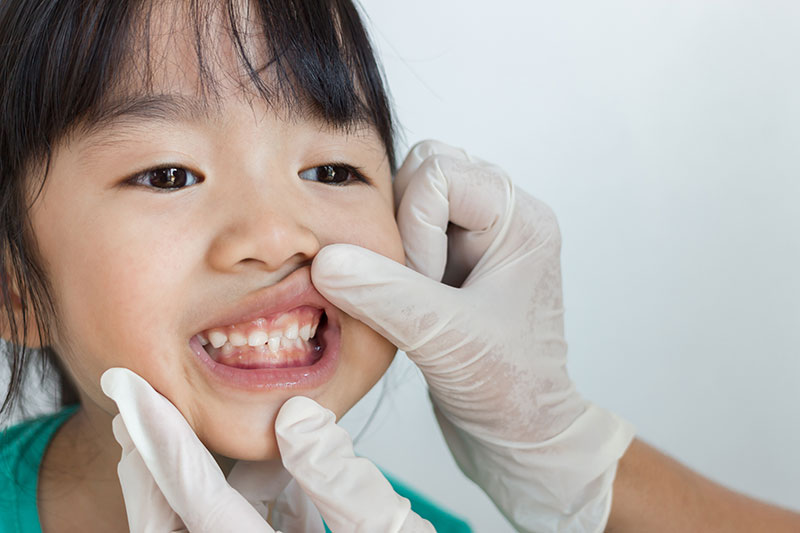
Does Your Child Have Shark Teeth? What This Means for Their Oral Health
All humans have two sets of teeth. The first (primary, deciduous, or baby) teeth erupt during the first few years of life. These teeth are then replaced throughout early childhood with permanent (adult) teeth.
What Are Shark Teeth?
Normally, when a child’s permanent teeth start to come in, they dissolve the roots of the baby teeth as they push their way up through the gum tissue. This leads to the primary teeth becoming loose, falling out, and subsequent visits from the tooth fairy.
Sometimes, however, this part of the process doesn’t happen. The roots of the primary teeth remain intact, the baby teeth don’t fall out, and the adult teeth erupt in a second row of teeth behind the original arch of primary teeth. When this happens, the second row of teeth is often referred to as “shark teeth” referencing the several rows of teeth that sharks have inside their mouths. Dentists, on the other hand, call this phenomenon “ectopic eruption.”
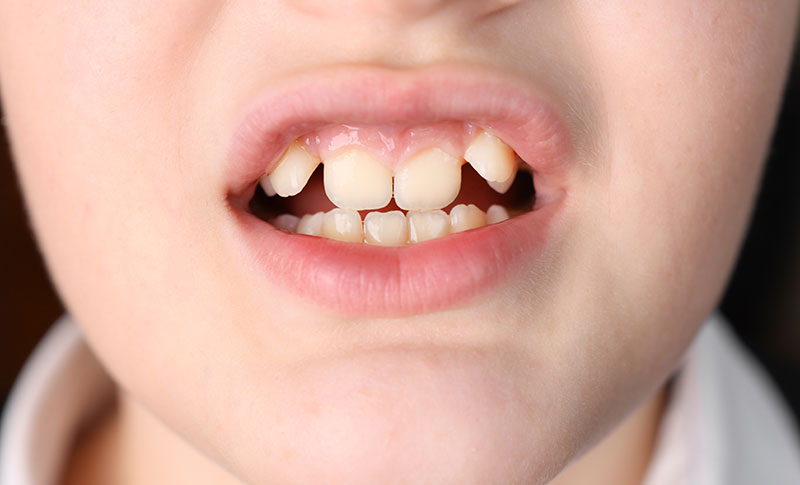
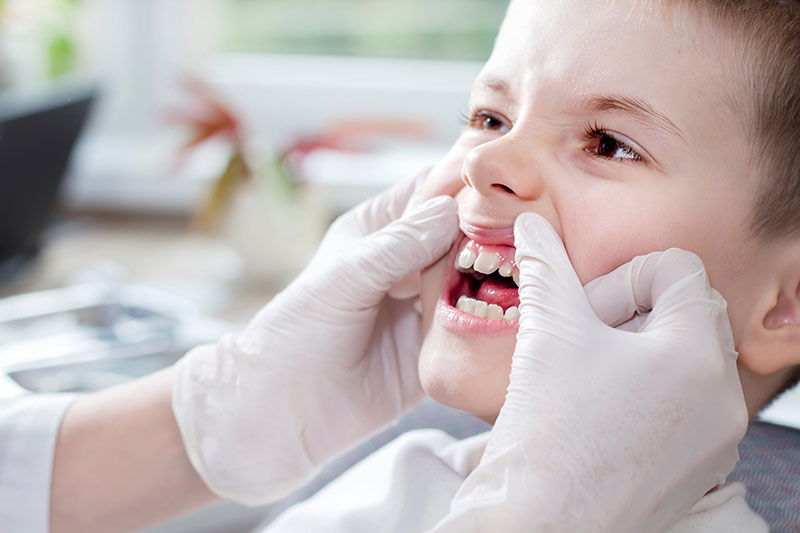
Are Shark Teeth a Cause for Concern?
Most often, shark teeth resolve themselves on their own. Typically, the baby teeth start to become loose shortly after the ectopic eruption of the adult teeth, and they fall out on their own. Even though the adult tooth is slightly out of alignment with the rest of the arch of teeth, the tongue will typically push the tooth into proper placement with some time.
What Happens If the Shark Teeth Situation Doesn't Resolve on Its Own
If the baby teeth do not come out on their own, and the permanent tooth has almost fully erupted (i.e. it is the same height as the baby tooth), then the baby teeth might need to be extracted because once the permanent tooth has fully erupted and developed it won’t move into proper alignment quite as easily.
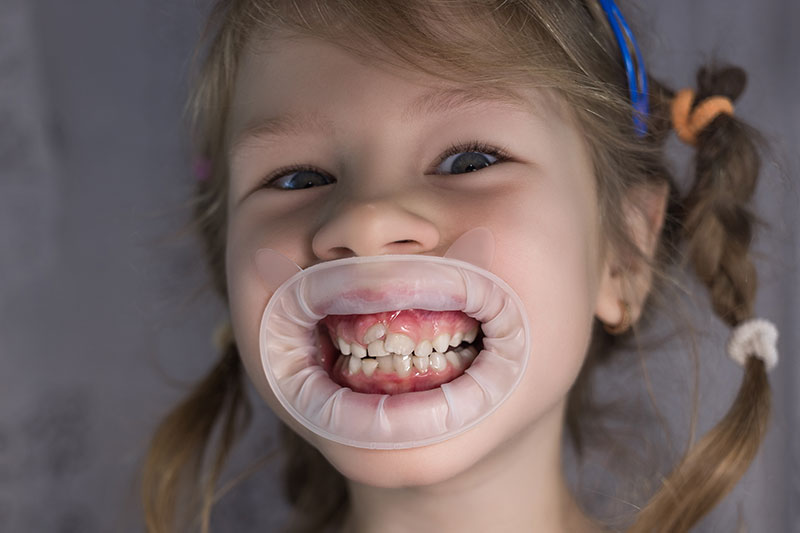
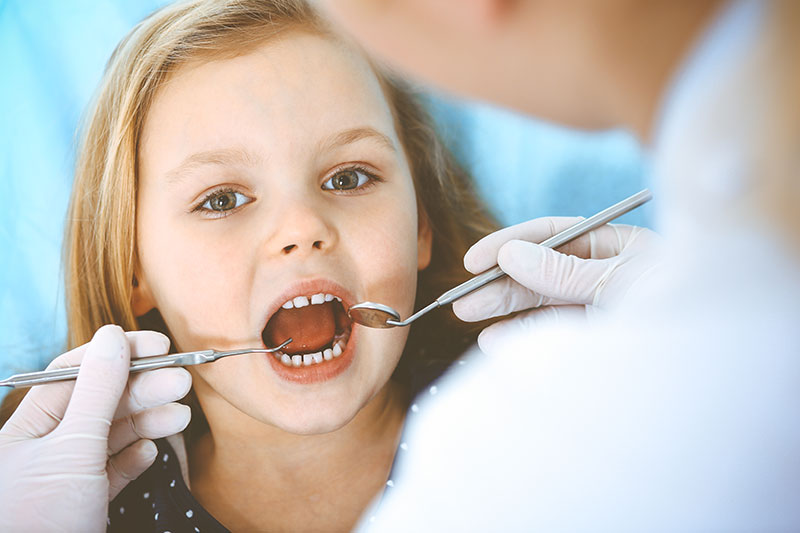
Kenmore Pediatric Dentistry, Guiding Through Your Child's Healthy Oral Development
Dr. Stewart at Kenmore Pediatric Dentistry is always here to help you through the ups, downs, and double rows of teeth of your child’s oral development. We recommend bringing your child in to see the dentist every six months for a checkup and cleaning. However, if you ever have any questions or concerns in between your child’s appointments, we always welcome you to call our office for advice or to find out if your child needs to see the dentist sooner than his or her next scheduled examination.



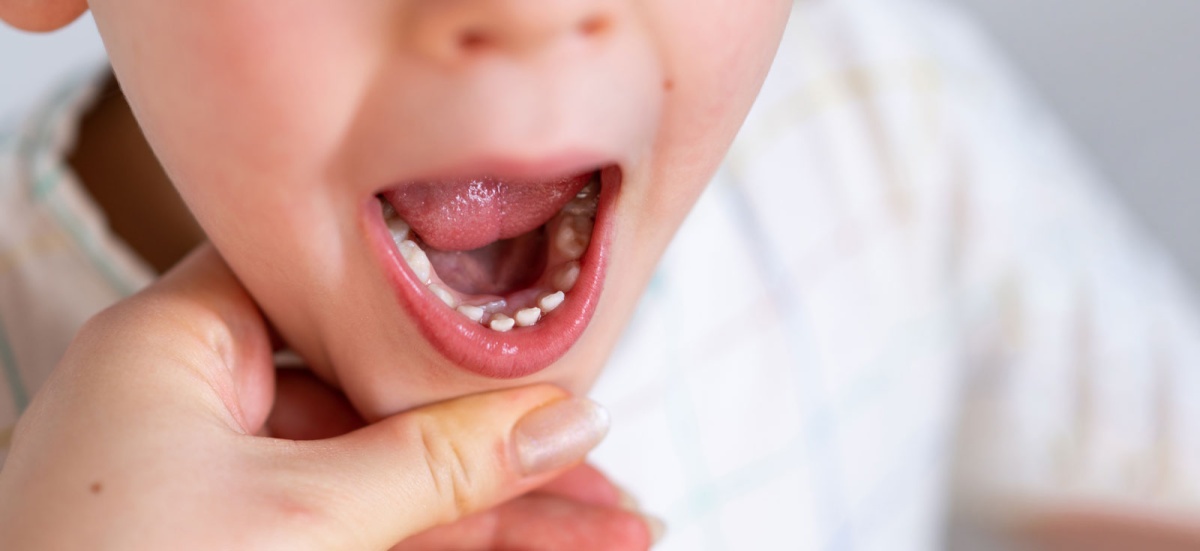





2.png)
